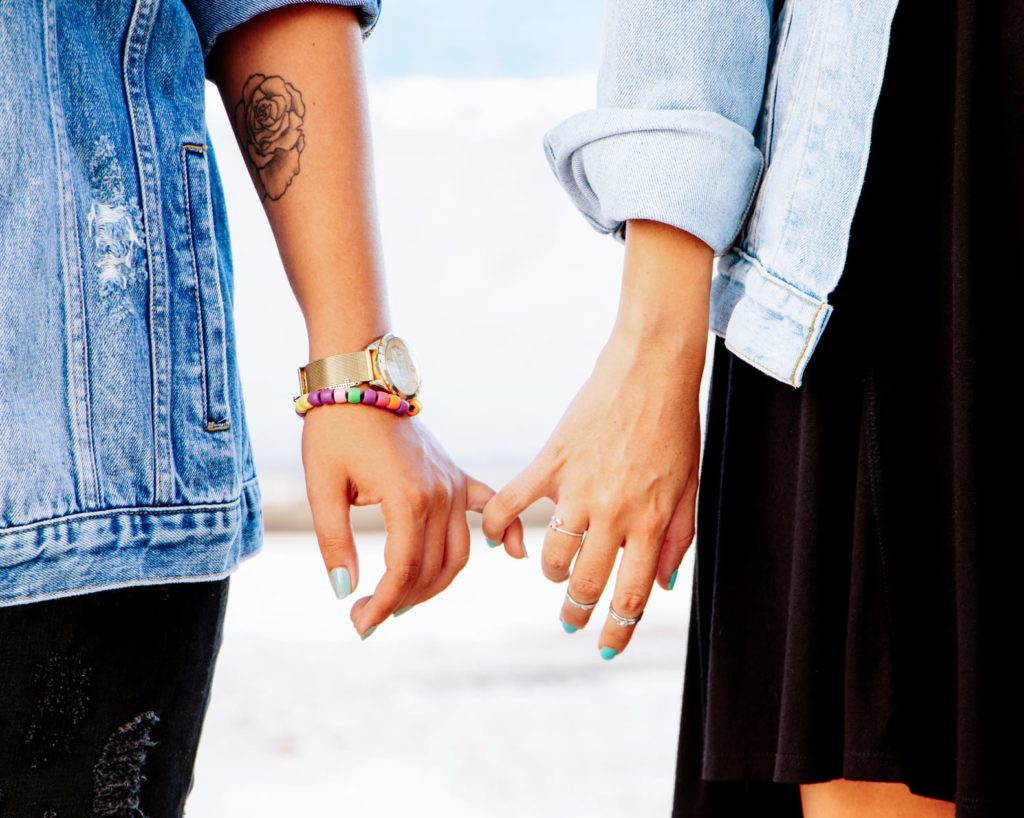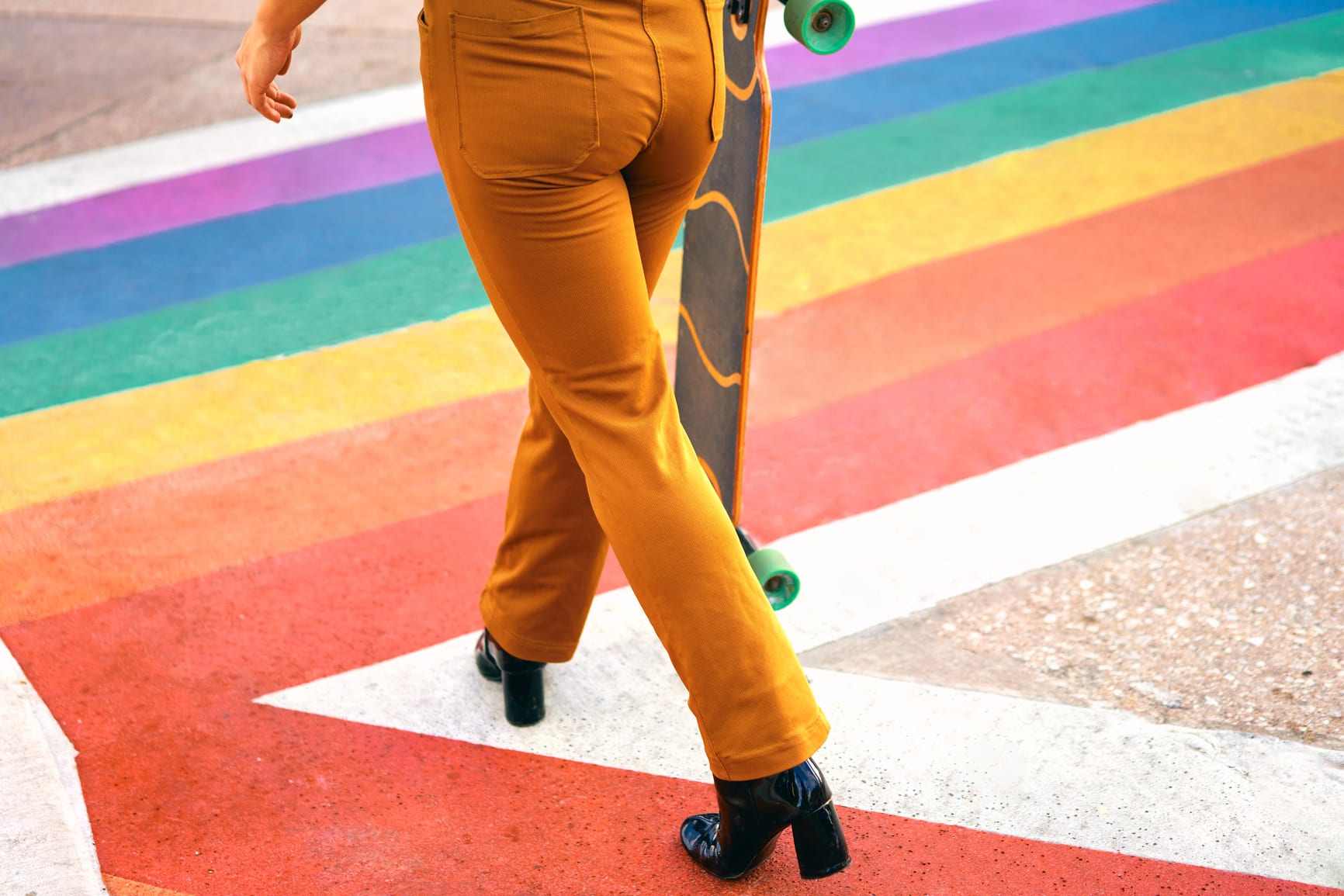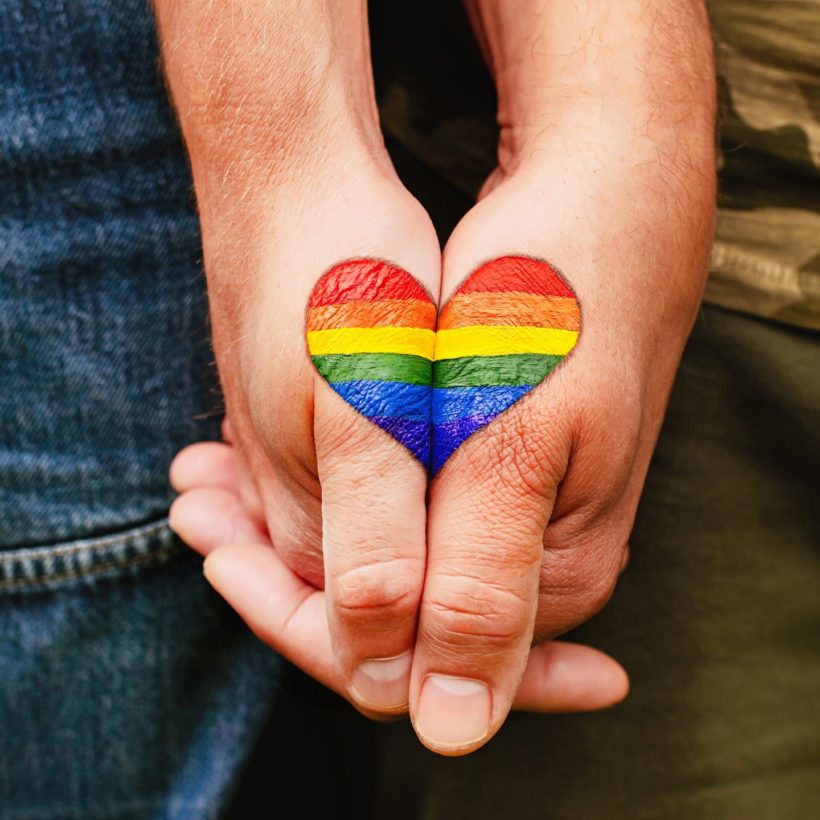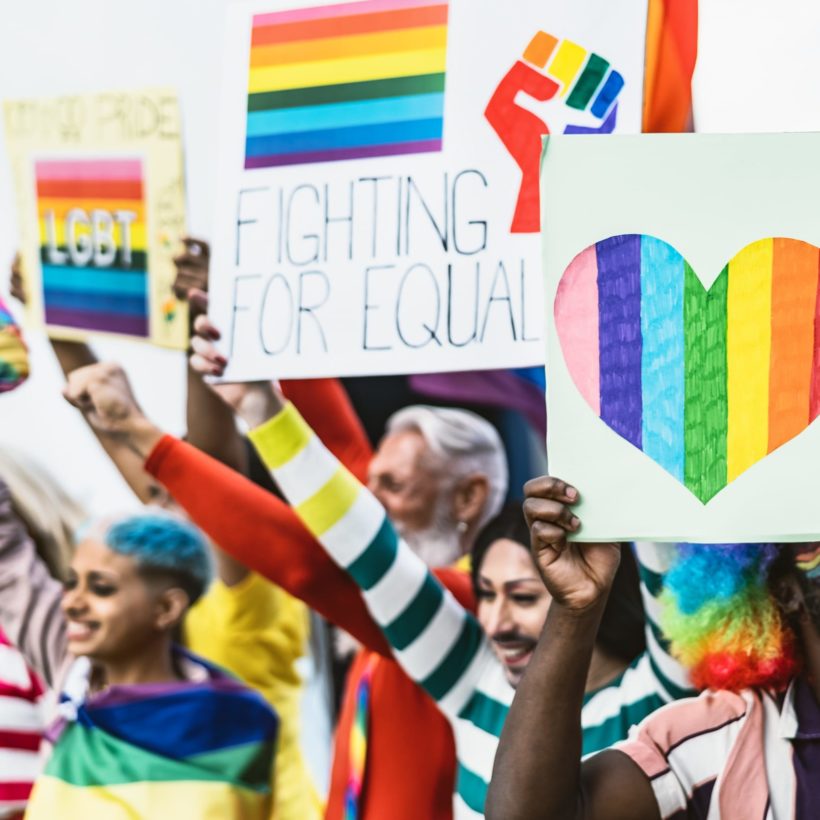When you think of your relationship with your best friend, it’s based on a nearly non-conditional type of love. You would go to the ends of the earth for them, support them in whatever way they need — and always have their back against all odds. Being an ally is a lot like being a friend, but you may or may not have an individual connection to the community you’re standing up for. Instead, you simply believe in the right of equality and inclusion for all — regardless of any other factors.
Though Pride takes place during June, it’s not enough to display your rainbow-colored support once a year. Instead, to be a true ally to this underserved and misrepresented group of people, you should be an active ally year-round. But what does it really take to be an ally? And what misses the mark? Here, we chatted with executives who identify as LGBTQ on the do’s and don’ts of being an ally:
Do have empathy.

Having the ability to understand and share another person’s feelings could be the superpower that heals the world, says Zachary Barker, an account supervisor at Demonstrate. The simple act of putting empathy before anything else allows you to be an ally in the ways the community needs you to be. And, it motivates you to push against any inclination to marginalize or discriminate.
As Barker shares, when he came out at the age of 19, those close to him who were not in the LGBTQ community themselves were likely challenged to think of their actions and how they may have impacted his journey. The goal with empathy is to find common ground, even if only a common thread, rather than being trained to see our differences as something to divide us, he says.
Don’t preach or talk to someone.
Your unconditional and undivided presence is paramount, and if you’re looking to be an ally, you must be prepared to listen and be a sounding board, Barker says. This means practicing the old rule of ‘you have two ears and one mouth, so you should listen twice as much as you speak’. But to be an effective listener, you need to really hear what they are saying — and not merely wait for your return to reply. “If someone is taking the time to share with you something that is likely deeply personal, and often, a dialogue that is not always easy to put into words, focus on really trying to take the words in and comprehending them,” he suggests. “Then ask follow-up questions perhaps to get a fuller picture.”
Do educate yourself about current LGBTQ issues.
To be an ally, you should be a constant consumer of news related to the LGBTQ community. And you should remember there any and all legislation that discriminates against these individuals could be scary, life-changing, and hurtful. By having a pulse on current events, you can be a better source of support. “’I may be having a bad day because I’m thinking about all the anti-trans legislation being passed around the country and how this may impact kids,” Ben Van Handel, Ph.D., the co-founder and CEO of Heraux, shares as an example. “If a colleague knows me and knows even vaguely what’s going on and they take five minutes to talk about my emotional state, I greatly appreciate their efforts to be aware.”
Don’t make assumptions about anything.
Unfortunately, those in the LGBTQ community are subject to many assumptions, many of which they have to correct daily. As an example, we shouldn’t assume bisexual people will ‘end up’ one way or the other, says Amy Russo, a bisexual woman and a BodyCombat and BodyPump instructor at Les Mills Fitness in New Jersey. “Every relationship I have been in and will ever be in will be a bisexual relationship because I am bisexual,” she continues. “Dating, marrying, living with, etc., one sex over another doesn’t erase someone’s bisexuality. Bisexual people make choices about who to be with, just like everyone else.”

On the same note, Russo says never to assume anyone’s sexuality, relationship, or identity is any of your business. If they want to share, they will. And if you ask, they will let you know if they are comfortable discussing it or not. “Discovering your sexuality can be a fragile process, especially for LGBT folks. It might have even been traumatizing if their coming out was not well received by friends and loved ones. If you love someone, you love all of them,” she continues. “They will show you pieces of themselves they believe you can handle. Let people live their lives, treat everyone with kindness.”
Do be proactive with your pronouns.
One great place to start being an ally to the LGBTQ+ community is being proactive about pronouns, recommends Kelly Moffat, the director of operations at Kirrin Finch. “Start introducing yourself with your pronouns, putting them next to your name in your next Zoom call, or popping them in your email signature,” she continues. Or in your IG profile, they just launched this feature. “By taking these steps, you are normalizing the act of asking people their pronouns, removing the assumption of which pronouns the person might use and taking the onus off of people who don’t use she/her and he/him.” Just like anything in life, change takes practice. So the more you practice it, the more natural it will be.
Don’t objectify, sexualize or fetishize our community.
In case you needed a reminder, being LGBTQ is not about what happens in the bedroom, reiterates Adam Drawas, the owner and co-founder of Walker Drawas. “It’s about who we are — and who we love,” he continues. “I find comments like ‘UGH you’re so hot, why do you have to be gay?’ or ‘Who’s the girl in the relationship?’ highly disrespectful and frankly annoying.” Since you wouldn’t ask inappropriate questions in a professional setting, you should avoid being inquisitive about highly personable matters.
In the same vein, consider the dress codes of your office and fight against them as an ally if they are not welcoming to all. As Moffat says, clothing is an influential tool people use to express themselves. “Many workplaces have dress codes so people present themselves professionally, and that is totally appropriate. But a dress code can be done inclusively,” she says. “Throw out the notion of a list for ‘men and women’ and use non-gendered language to describe what is appropriate for your company. This isn’t the 50’s people, ditch the skirt length and tell folks it is ok for everyone to wear dresses or pants no matter who they are.”
Do invite others to join you in support.

To be an ally, you have to be part of the community you’re supporting. This means that you will expand your circle of friends and your core reference group by inviting them to share an experience with you, says Rich Walczak, the Miami Beach Pride executive director. And shop where your allyship is by attending events and visiting places that cater and/or support LGBTQ efforts.
“Most people in the LGBTQ community grew up feeling out of place, and did not have a sense of belonging in a predominantly straight society that has had to accommodate, manage and navigate varying lifestyles their entire life,” he continues. “By making friends with folks in the LGBTQ community and understanding their journey, allies not only demonstrate tolerance, but they also become educated by affiliation.”







